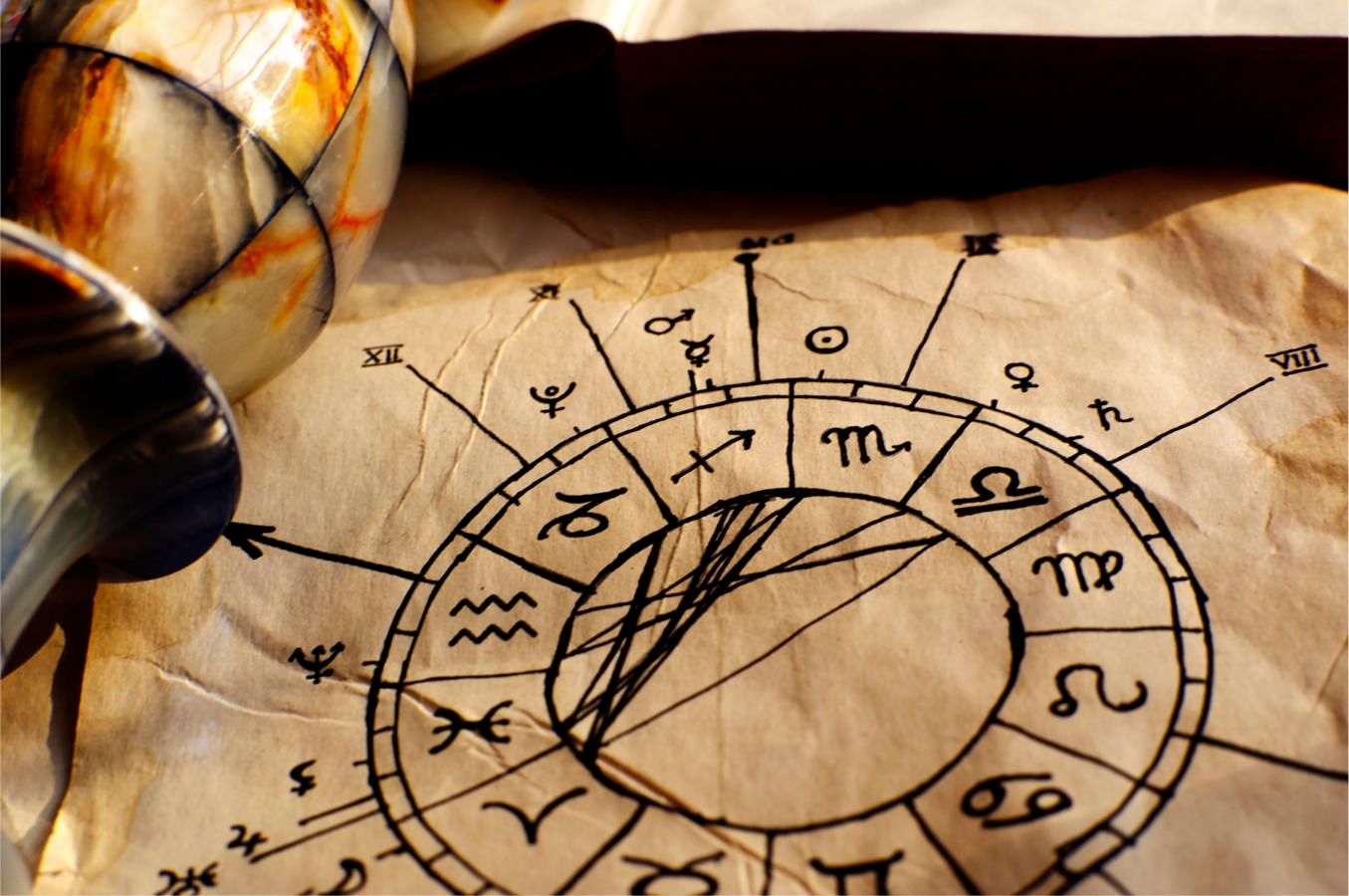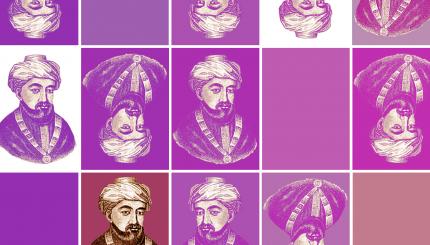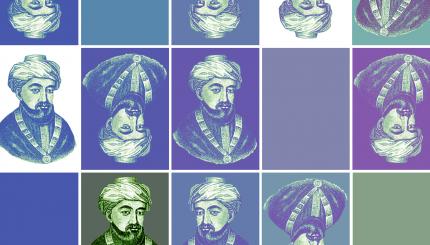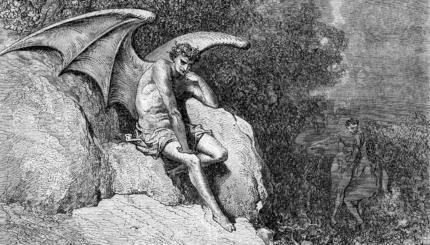Judaism has long had an ambivalent and at times contradictory approach to astrology, the practice of discerning the influence of celestial bodies on human destiny.
On the one hand, the claim that the stars exert a direct influence on individuals and world events would seem to cut against the core Jewish belief in free will. The Torah also forbids efforts to foretell the future. However, Jews throughout history have believed that the heavenly bodies influence events on earth. References to astrology are found throughout the Talmud, and several works of astrology were subsequently penned by major rabbinic figures. Jewish thinkers across history have tried to reconcile these two beliefs, while others have rejected astrology outright.
Astrology in the Hebrew Bible
The Jewish Bible makes no explicit mention of astrology, though already at the creation of the celestial bodies in Genesis, the text says (Genesis 1:14) that they were to be “signs” in addition to demarcating days and years. Some commentators see this language as indicating their role in astrological predictions.
However, the Torah prohibits divination and soothsaying, both of which have been invoked as a basis for claiming the Torah opposes astrology. The latter prohibition (lo t’oneinu in Hebrew) is derived (according to Rashi) from the Hebrew root meaning season or time period, the idea being that someone violates this prohibition by declaring a particular day auspicious for some task. Maimonides would later state unequivocally that this makes soothsaying a type of astrology, noting that such declarations can be derived from astrological calculations.
Astrology in the Talmud
The ancient rabbis lived among peoples who believed in astrology and references to its insights are found throughout the Talmud. Among the most famous is this line from Genesis Rabbah 10, which was written during the talmudic period: “Rabbi Shimon said: There is not a single blade of grass that does not have a constellation in the firmament that strikes it and says to it: ‘Grow.’” In Moed Katan 28a, Rava states that one’s lifespan, children and sustenance depend not on merit, but on mazala — the Aramaic word for constellation.
The most extensive treatment of astrology in the Talmud is found in Shabbat 156a, which records a lengthy series of teachings about the inclinations of people born on particular days of the week and under the influence of specific planets. One born under the sun, for example, is radiant, while those born under the morning star Venus are promiscuous, and so on. The Talmud records no rabbi voicing opposition to any of this. Rather, they consider a related question: Do these general astrological principles apply to Jews as well as non-Jews? A single rabbi, Rabbi Hanina, claims they do, but this is followed by a number of rabbis bringing proofs to demonstrate that ain mazal l’yisrael — there is no constellation for the Jewish people.
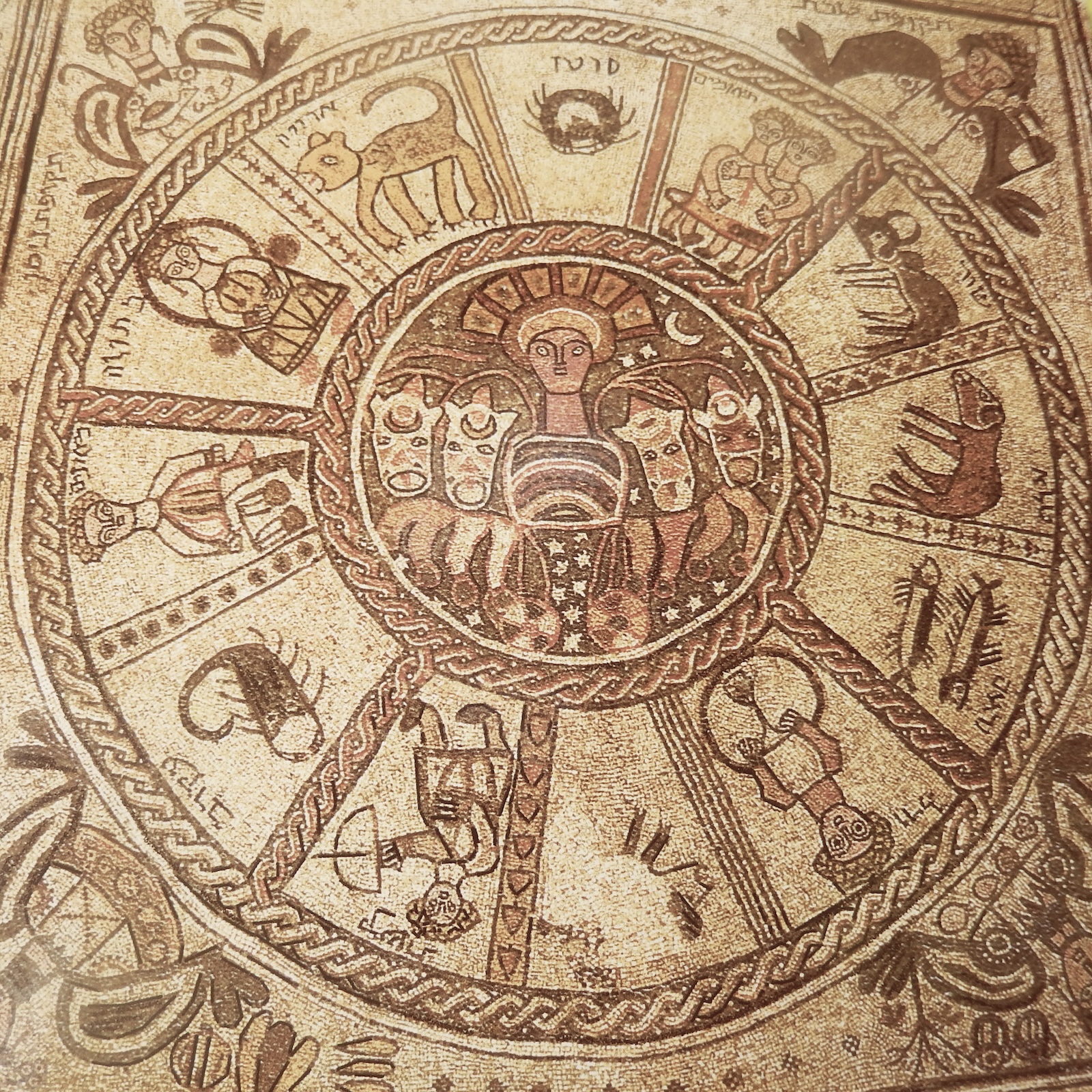
The rabbinic consensus here can be seen as an attempt to square the general understanding that astrology is a valid science with the Jewish commitment to free will. In short, while there is truth to astrology, Jews can mitigate celestial influence through adherence to the mitzvot.
Scholar Ronald Keiner summarizes it this way: “The double message of ‘yes — there is truth to the system of astrology, astrology is irrelevant to the religious dynamic of Judaism’ was the legacy which the rabbis of the talmudic age bequeathed to their subsequent medieval followers.”
Medieval Jewish Approaches to Astrology
The most important medieval rabbinic authority, Moses Maimonides, emphatically opposed astrology. A consummate rationalist, Maimonides understood astrology as claiming that it is impossible to alter one’s destiny, a view he deemed incompatible with Jewish tradition since it denied humanity free moral choice. He even attributed the destruction of the ancient Temple to divine punishment for the preoccupation of some Jews at the time with astrology.
Maimonides’ most extensive treatment of the subject is his 1194 letter on astrology, in which he wrote:
You should realize that all the assumptions of the astrologers with regard to the forecasting of impending events, or the determination of one’s destiny by the constellation at the time of one’s birth, are irrational superstitions devoid of any scientific basis. I have clear flawless proofs invalidating their essential theories.
Maimonides was not alone in his opposition. The Shulchan Aruch, written some four centuries later, also forbade consulting astrologers.
Yet there were several major rabbinic figures of the medieval period who were astrologers, perhaps the most important being Abraham Ibn Ezra, a 12th-century Spanish rabbi who wrote a famed commentary on the Torah. Less well-known is that Ibn Ezra also published multiple volumes on astrology, a subject central to his broader approach to Judaism. “More so than any of his predecessors, Ibn Ezra brought astrology into the heart of Judaism,” Keiner has written. Historian Shlomo Sela notes that Ibn Ezra’s works were popular among Jewish intellectuals in southern France in the 14th century, including the esteemed Rabbi Levi ben Gerson (better known as Gersonides or the Ralbag), a 14th-century French philosopher and astronomer.
Yet even as Ibn Ezra occasionally offered astrological explanations for Jewish observances, he ultimately agreed with the talmudic view that Jews are not subject to astrological forces, at least as long as they observe God’s will. “And this corresponds to the one who accepts the wisdom of astrology and relies on fate,” Ibn Ezra wrote in his philosophical work Yesod Mora VeSod HaTorah. “But the name (of God) was given to Israel as an inheritance and to remove them from the dominion of the constellations, as long as they are under His dominion and fulfill what is commanded in His Torah.”
In contrast, Judah Halevi, the 12th-century Spanish physician philosopher who wrote the Kuzari, conceded that celestial bodies may exert influence on human affairs, but denied that human beings can understand the particulars:
We cannot deny that the heavenly spheres exercise influence on terrestrial matters. We must admit that the material components of growth and decay are dependent on the sphere, while the forms take their origin from Him who arranges and guides them, and makes them the instruments for the preservation of all the things which He wishes should exist. The particulars are unknown to us. The astrologer boasts of knowing them, but we repudiate it, and assert that no mortal can fathom them.
In sum, while Maimonides, who was known for his rationalism, completely rejected astrology as nonsense, many other Jewish thinkers of the period gave credence to it, though not without some measure of reservation.
Astrology and Jewish Mysticism
Astrology found a ready audience among some medieval Jewish mystics, who were deeply interested in the underlying mechanics of the universe and in describing how energy flowed from the heavenly sphere to the physical world. The principal way this happens, according to the kabbalists, is through the sefirot, the ten divine emanations. But astrology was also seen as a way that divine energy was channeled to the earthly plane. Astrology also aligned with the kabbalistic view that everything in the physical world has a counterpart in the higher realms. This has led some kabbalists to create detailed maps that establish correspondences between the sefirot and the zodiac signs.
Moshe Chaim Luzzatto, an 18th century kabbalist best-known for his ethical work Path of the Just, described how divine energy flows through the stars in his philosophical work Derech Hashem. He writes: “The number of the stars, their various levels and divisions are according to what the Supreme Wisdom saw to be necessary and appropriate in order to achieve this transferral that we mentioned. Hence the power of existence flows from the stars to every physical item below them. They are the means to transform its content, from its character above, in the roots, to its character below.”
While both the kabbalistic and astrological traditions described these celestial mechanics, the Jewish mystics maintained that the kabbalistic system was superior, as 15th century Italian kabbalist Yohanan Alemanno explained: “The astrologer studies the movement and governance of the stars. In the same way the kabbalist knows what will happen to people in the future by reference to the influence and efflux of the sefirot. This is in accordance with the activities and movements of those who perform the commandments and divine service. This method is superior to that of the astrologer.” Moshe Idel, a historian of Jewish mysticism, has suggested that this makes the kabbalist a kind of “superastrologer.”
Contemporary Views
In contemporary Jewish life, astrology has little purchase. Though mazel tov is the most common Jewish expression of congratulations, it has long been stripped of its celestial connotations. Most Jews use the expression with no awareness of its astrological origins nor of the fact that its common usage after the birth of a child nods to the core astrological idea that the timing of birth has an indelible imprint on a person’s destiny.
However many Jews continue to find significance in astrological charts, particularly in mystical circles. Some contemporary Jewish thinkers have attempted to square the contradiction between ancient Judaism’s obvious belief in the validity of astrology with the more rationalist bent of much of mainstream Jewish practice in the way the rabbis of the Talmud did, by suggesting that while the stars might establish an inclination in a certain direction, human beings retain the freedom to act in accordance with those inclinations or to resist them.
Astrology, in other words, may be real — but it’s not destiny.
mazel tov
Pronounced: MAHZ-ul tahv or mah-ZAHL tove, Alternate Spelling: mazal tov, Origin: Hebrew, literally “good luck,” but usually used to mean “congratulations.”
